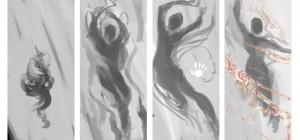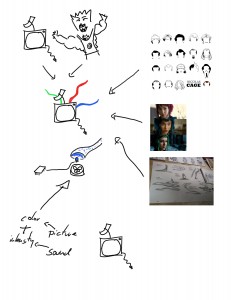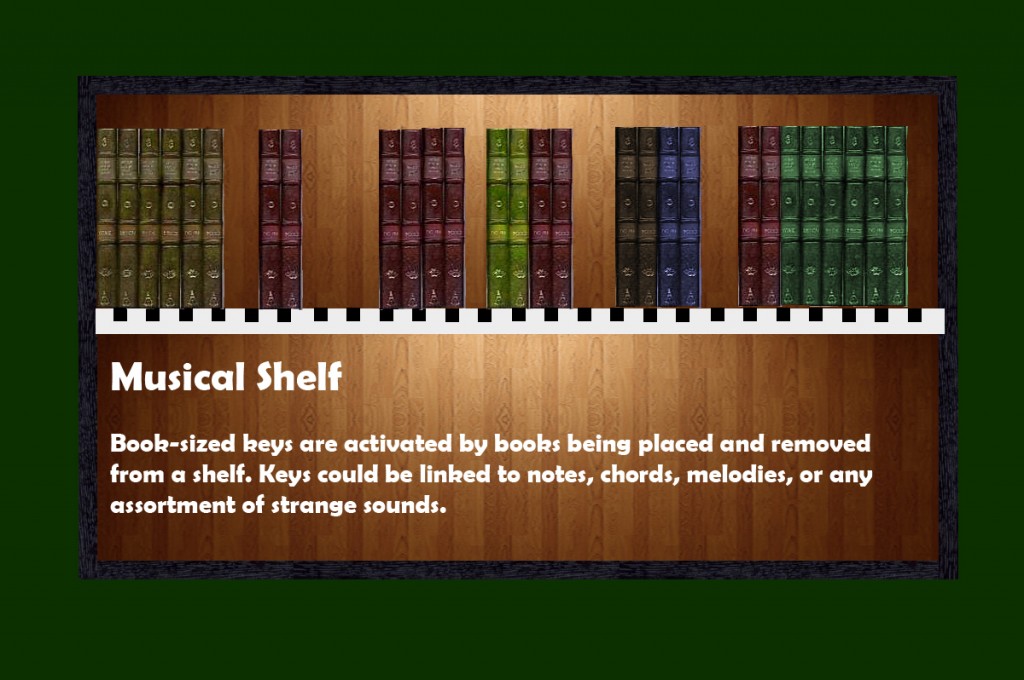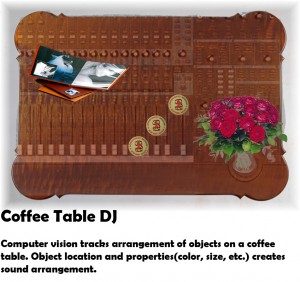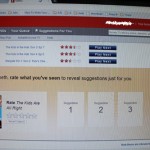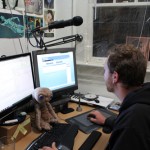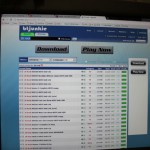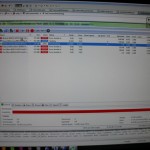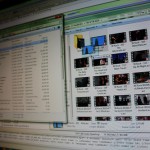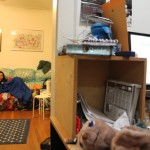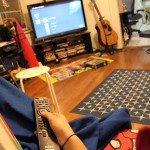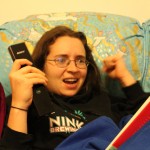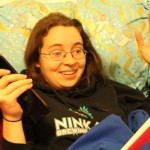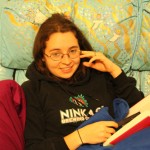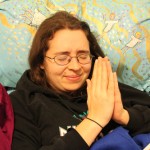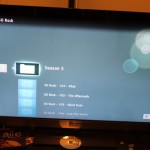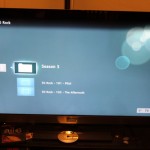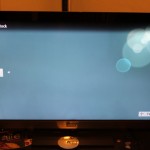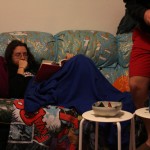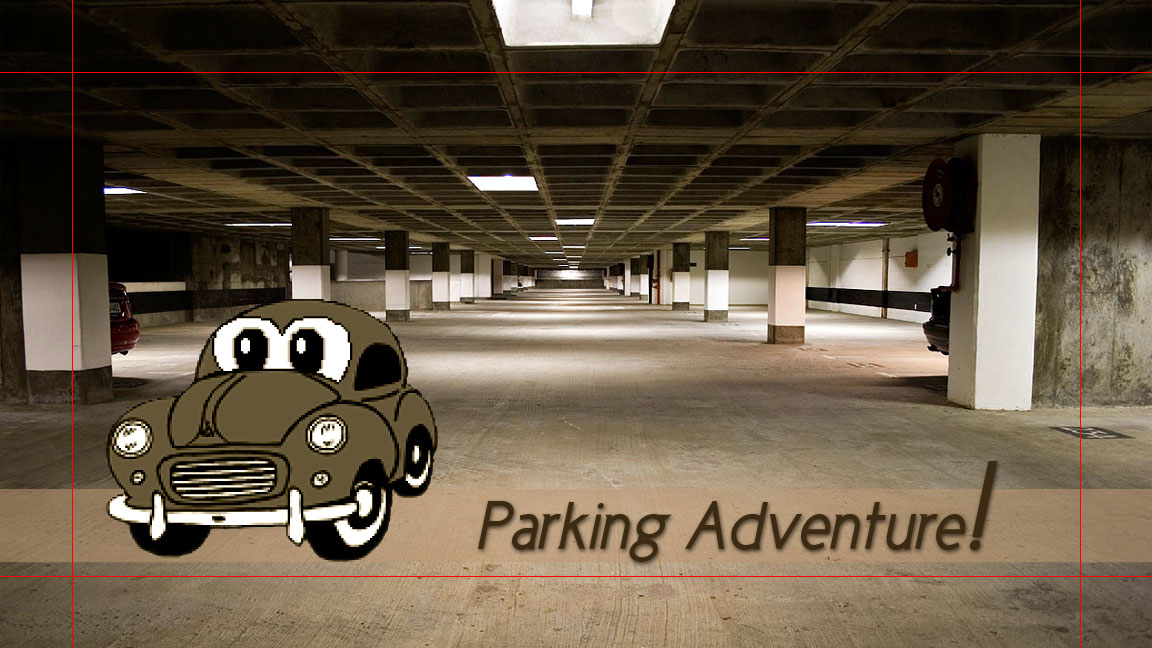NYC challenge
September 28th, 2011 by Michael NitscheThis is our second external challenge and while we are not committed to implement it, I would encourage us to think in a “could do this” way. Just to keep the options open.
Let’s break this one down a bit:
This challenge is about the translation of gesture into some other form. Such a “translation” happens on the media level (e.g. into sound, text, sculpture etc.) as well as the cultural level (as it enters new settings and conditions).
The particular cultural condition for us is: an Iranian woman is not allowed to dance in her homeland. Her dances in public spaces in NYC are dealing with this, but cannot really answer the underlying cause, because of the forced distance and the fact that she cannot get back. Thus, the task is to find a way to translate movements (and we should think beyond the dance we saw) into another form – ship this form to Teheran – and install it at a public space there.
This would be a one-way directed performance – and the first and primary target. However, the bonus round is to think about how local Iranian artists could react and collaborate with this dance on the basis of our transformation.
Another element to keep in mind are the conditions in Iran, the danger of any public performance and the security of anybody involved in such a piece (whether it is this subway or the plaza).
To add some notes from Michael: there are a number of massive challenges that hover under the surface of this challenge: e.g. transformation of time and place and context – all this in a cultural context we cannot fully grasp. Let’s focus on the particular set up with our client and not let’s not get overburdened by the big shift between these two worlds.
Second note: as we will have to communicate this back via Skype: be as visual and tactile and cinematic and dramatic and expressive … as possible in your concept presentation next week.
Insect Stories
September 28th, 2011 by NOTAndrew QuitmeyerDigital Mirror Parade
September 27th, 2011 by NOTAndrew QuitmeyerFor the design challenge for the Atlanta School, I propose a performance project involving hauling a kinect down a historical path to map the space and change it:
http://andy.dorkfort.com/art/myt/Digital%20Mirror%20Parade%20(2).pdf
Vertical Segregation
September 27th, 2011 by NOTAndrew QuitmeyerWe divide groups of people in many different manners, I propose a new one:
http://andy.dorkfort.com/art/myt/Vertical%20Segregation.pdf
Mark Your Territory
September 27th, 2011 by NOTAndrew QuitmeyerLots of initial design went into this project and the first parts are described a bit below, and can maybe be chatted about more later.
The current design of the physical system is detailed in this PDF:
http://andy.dorkfort.com/art/myt/MarkYourTerritory_1.pdf
—————————–
The first step was to prototype the purely physical stage of the product. This means prototyping and designing a marker with several intersecting qualities related to taking ownership of a particular locale. The key features that I initially needed to design for come down to the following:
Third design challenge
September 21st, 2011 by Michael Nitschethis time we will try to include the process into the design challenge and we would like to proceed with a view toward the Dourish paper. In some ways the challenge is a practice-based response to the paper.
step one: find a context
step two: analyze it in what Dourish called “positivist” way
step three: break it down to a “phenomenological” counter approach
from these analyses evolves your particular problem
step four: based on step three > suggest a digital thing
We would love to see your process when you do your print out/ presentation.
Open Hardware streaming
September 15th, 2011 by Michael NitscheFrom Friedrich:
In case any of you are interested in Open Hardware, they are streaming the whole thing live from New York:

Second challenge
September 14th, 2011 by Michael Nitschedesign challenge for September 14th
This challenge is based on the quote used in Potteiger/ Purinton “To exist historically is to perceive the events one lives through as part of a story later to be told” (see p 4); create a digital media “thing” that puts a 14-year old into such a frame. The history field we are talking about is the civil rights movement.
As an extra incentive: keep in mind the evolution from exploration/ discovery of something to a state of transformation/ creation to a state of replanting/ distributing. History, here, should not be seen as a thing of a distant past but in relation to one’s life in the here and now.
First design challenge for fall 11
September 2nd, 2011 by Michael NitscheHere is our initial “warm up” design challenge on the official channel:
the jump off points for the design challenge from the readings was a combination of the
“frame” as described by Bateson
and the “wittingness” as described by Sheridan
and the role of theater as described by Boal (we talked less about that, so here is the key quote, I want to stress: “The theatrical language is the most essential human language. Everything that actors do on stage, we do throughout our lives, always and everywhere. Actors talk, move, dress to suit the setting, express ideas, reveal passions -just as we all do in our daily lives The only difference is that actors are conscious that they are using the language of theatre, and are thus better able to tum it to their advantage, whereas the woman and man in the street do not know that they are speaking theatre”)
The assignment is:
Find an everyday movement that happens in daily life.
Design an intervention that changes our awareness (wittingness, if you want) and transforms us to actors (spect-actors, if you want).
The goal of that intervention is a change in behavior for this movement.
Your intervention should be non-digital as we will be digital enough in the future.
Due in two weeks – so I hope to see some working designs.
MoMa Talk to Me exhibition, NYC
July 28th, 2011 by Michael Nitsche
In case anybody is traveling to the big city, this one might be worth a look:
MoMA EXHIBITION INVESTIGATES THE COMMUNICATION BETWEEN PEOPLE AND OBJECTS THROUGH DESIGN
Installation Provides Visitors with Greater Access to Information by Incorporating the Use of Technology, Including QR Codes and Twitter Hashtags for Each Object
Talk to Me: Design and the Communication between People and Objects
July 24–November 7, 2011
Special Exhibitions Gallery, third floor
Their website has videos of all the demos online. As I the question on “what makes a good demo video?” is still open, maybe there is some inspiration there.
Build your own
July 12th, 2011 by Michael NitscheApologies for getting still excited about these little DIY projects but isn’t this “How to build your own FM transmitter” just cute?

It is all happening
July 9th, 2011 by Michael NitscheAs I am looking over the Atlantic Station documentation once more, I stumbled over this: a theme park planned in China and using World of Warcraft as reference. Almost as good as my favorite theme park-video game reference: the Universal Theme Park Ride for the GameCube. In that one you have to pick up trash in the game theme park to collect points. The Chinese one has awkward parallels to the eternal gold mining discussion. Seems there is a continuing thread from work to park and back.

from Brian: melting monuments
February 10th, 2011 by Michael NitscheBrian Magerko mailed this to me, pointing out that he somehow believes this could be interesting for DWIGs.

Beautiful stuff.
Television Wrestler
February 9th, 2011 by Michael NitschePerformance Link
February 9th, 2011 by Matt DrakeArchitecture Against Death
February 9th, 2011 by NOTAndrew QuitmeyerThis isn’t my idea, just inspiration for some things to share in class today:
Intervention of Domestic Performance
February 9th, 2011 by Nick PoirierWatching TV in the early 21st century
February 2nd, 2011 by NOTAndrew QuitmeyerA ritual my wife and I have is typically to watch a couple of tv shows in the evening. Since the days of cable television are behind us, we rely entirely on somewhat scrappy ways to get our video fix.
Instead of just plopping on the couch and shifting channels until you find something good (as in the days of old), the first step is locating a target TV show. Currently we accomplish this via a) torrenting popular tv and movies, b) a friend’s Netflix account, or c) recording HDTV broadcast over the airwaves (only for jeopardy).
For option A) we have to scour the internet a bit to see if people have ripped a certain episode already, or if we will have to wait a couple more days for the internet goons to get a good torrent going of a particular episode. Then we have to wait for it to download. Depending on how popular the show is, this can vary from under a minute (like “It’s Always Sunny in Philadelphia”) or take several days (like old episodes of “Pete and Pete”). Before, we would have to start the episode playing on the computer (which sent a signal to the TV in the other room), and then run over to the living room to start watching it, but now we have a fancy new TV that can access our computer like a media server. This is awesome because it brings the browsing experience back to the couch, but it also causes lots of grief when we add new files and they don’t show up on our tv for DAYS.
Using option B), a friend’s netflix account (yeah we are that cheap), tends to run much more smoothly, but there are still many times when a certain video that we added to the queue (still from the computer in the other room) refuses to show up on the TV’s netflix app.
Option C) is the most dynamic and troublesome option. Even though “Jeopardy” has YEARS worth of, interesting, varied television content, they lock up their information harder than any other television show. You cannot find torrents or episodes hardly anywhere on the web, but they do broadcast individual episodes once a night for free over the HD airwaves. So we hook up an antenna, to a digital tuner that feeds into my computer. The computer is then set to record a specific channel from 7:30 -8:00 mon-sat to catch episodes of jeopardy. These episodes then (ideally) show up automatically on our computer’s media server, but usually lead to the same kind of frustration as when we download any new file. One thing that often leads to exciting physical drama, is that, even though we don’t have to watch the episode of Jeopardy from 7:30-8:00 we have to make sure the computer is ON during these times. This has caused many scrambles through the house when we realized that it was 7:42, and the computer was OFF!
Once a TV show is working, and we have finished it, we either play a game of boggle, do some weird art project, work, read, or start the process over and search for a new piece of content to watch.
Laurie Anderson at Tech: Thu 3rd @ 1pm
February 2nd, 2011 by Michael Nitsche
Andy will be heavily involved in this but for the rest of us … and before I forget to mention it: Laurie Anderson is at Tech on Thursday. She gives a lecture/ workshop thing at the Hinman Research Building. More info > here.
Aware Home Hacks talk
January 21st, 2011 by Michael NitscheTOPIC : Aware Home Hacks: Tech overview
SPEAKERS(s) : Nachiketas Ramanujam
WHEN : Friday, January 21, 2011 11:30am – 1pm (presentations begin promptly at noon, lunch and drinks available around 11:30am)
WHERE : The Aware Home – 479 10th St NW Directions: http://awarehome.imtc.gatech.edu/contact-us <http://awarehome.imtc.gatech.edu/contact-us>
LUNCH: Lunch will be served. To ensure we have the correct amount of food please sign up at http://swiki.cc.gatech.edu:8080/ahome/691 (login/pwd: “ahri”/”ahri”) by Friday at 9:00 a.m. to receive lunch!
Postmedia reference
January 20th, 2011 by Michael NitscheJust got this link in the mail – consider it a possible connection point for positioning “new media art”: The Postmedia Perspective; excerpt from Domenico Quaranta’s “Media. New Media. Postmedia.” book
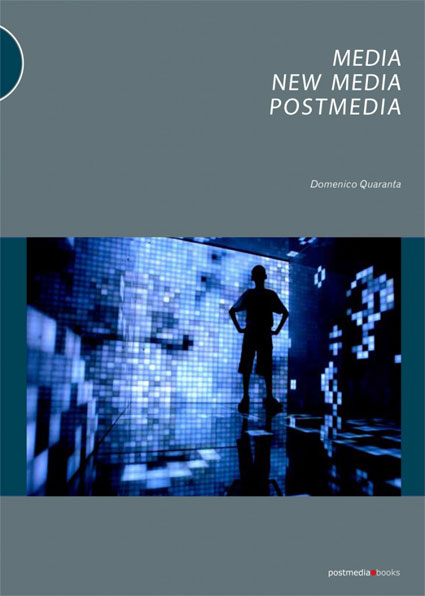
meeting notes 1/19
January 20th, 2011 by Michael NitscheWelcome to the new round
below the mainly administrative tasks discussed today in the meeting
blog:
(Laura + Matt)
– show author
– add “older post” + “newer post”
– add blog roll
– add admin login on front
– visual consistency (size of images)
– include video (embedded)
catch up from last term:
– the duck video (combine Nick + Andy’s footage) (assembly in 2 weeks)
– the Atlantic station site (make a catalogue) (Blacki visuals; RR text)
read: Kester chap 2
write the domestic performance (action, space, objects, audience?, time, lights ….)
Ducks site updated
December 7th, 2010 by Michael NitscheHave a look at our Ducks Feed People site – I added some content to Amy’s outline.
Thanks to everyone who helped out and managed the Tootsie feeding frenzy.
Dog poop cleanup game
November 23rd, 2010 by Rebecca RouseI think this game may be even worse than our parking spot game.
Ghosts of Amsterdam
November 23rd, 2010 by Rebecca RouseHey, just saw this and it reminded me of our photo album!!
http://www.howtobearetronaut.com/2010/03/the-ghosts-of-amsterdam/
Best,
Rebecca
